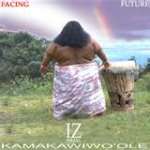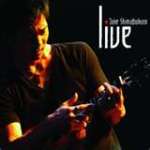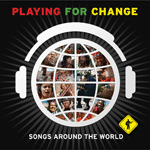 Don’t forget the FleaJumpers’ monthly Flea Fest at Jeanne’s house in St. Helena, this Sunday at 6. You’ll need to RSVP with me to get the address. If you don’t have my email, leave a comment below and I’ll try to track you down to send it. (You will need to subscribe, first.) I don’t know about you, but the taxman’s certainly taken all my dough. In honor of April 15, I have posted “Sunny Afternoon” by the Kinks (with thanks to the Ukulele Club of Santa Cruz). Any other songs about money are more than welcome during these trying times. Please bring enough copies to share…about 12. In light of the times, I think we’ll also be doing “Yo Ho (A Pirate’s Life for Me!)” from the FleaJumpers Songbook.
Don’t forget the FleaJumpers’ monthly Flea Fest at Jeanne’s house in St. Helena, this Sunday at 6. You’ll need to RSVP with me to get the address. If you don’t have my email, leave a comment below and I’ll try to track you down to send it. (You will need to subscribe, first.) I don’t know about you, but the taxman’s certainly taken all my dough. In honor of April 15, I have posted “Sunny Afternoon” by the Kinks (with thanks to the Ukulele Club of Santa Cruz). Any other songs about money are more than welcome during these trying times. Please bring enough copies to share…about 12. In light of the times, I think we’ll also be doing “Yo Ho (A Pirate’s Life for Me!)” from the FleaJumpers Songbook.
There will be No Thursday Night Follies, this week (April 16.)
 Check out the Song Files. I’ve just posted the sheet for “Ain’t Nobody Here But Us Chickens” (prepared with help from our friend Jeff in El Cerrito). If you look in the column to the right (you’ll need to be on the actual webpage to do this), you’ll see a couple of iTunes links in case you want to download the song in either the Louis Jordan or Asleep at the Wheel version. I’ll be adding more shortly. Downloads may not be in the same key we play them in, but it’s a great way to learn the melody and timing, and they’re usually just a buck! Such a deal.
Check out the Song Files. I’ve just posted the sheet for “Ain’t Nobody Here But Us Chickens” (prepared with help from our friend Jeff in El Cerrito). If you look in the column to the right (you’ll need to be on the actual webpage to do this), you’ll see a couple of iTunes links in case you want to download the song in either the Louis Jordan or Asleep at the Wheel version. I’ll be adding more shortly. Downloads may not be in the same key we play them in, but it’s a great way to learn the melody and timing, and they’re usually just a buck! Such a deal.
 The 16th Annual ‘Ukulele Festival of Northern California, “Living the Legacy,” is coming up, April 26 at the Hayward Adult School, 22100 Princeton Street, Hayward. Entrance fee is a mere $7 and children under 5 are free. This is the longest running festival on the mainland and offers non-stop ‘ukulele entertainment from 10:30 am to 5:30 pm. Our own Erich Sylvester will be on at 2:00 p.m. with his retro hapa haole band. Al Dodge and his crew will be jamming in the courtyard most of the afternoon. The courtyard is also where the vendors will be, offering everything from feather leis to fine hand-made ‘ukuleles, and, of course, we’ll be there with our kani-ka-pila klips and other assorted ‘ukulele goodies. It’s a great day to catch up with your ‘ukulele buddies and make some new ones.
The 16th Annual ‘Ukulele Festival of Northern California, “Living the Legacy,” is coming up, April 26 at the Hayward Adult School, 22100 Princeton Street, Hayward. Entrance fee is a mere $7 and children under 5 are free. This is the longest running festival on the mainland and offers non-stop ‘ukulele entertainment from 10:30 am to 5:30 pm. Our own Erich Sylvester will be on at 2:00 p.m. with his retro hapa haole band. Al Dodge and his crew will be jamming in the courtyard most of the afternoon. The courtyard is also where the vendors will be, offering everything from feather leis to fine hand-made ‘ukuleles, and, of course, we’ll be there with our kani-ka-pila klips and other assorted ‘ukulele goodies. It’s a great day to catch up with your ‘ukulele buddies and make some new ones.
Speaking of Al Dodge, he and the Sundodgers have a new CD out, Under the Sun, and it’s great driving music. (I love “Felix the Cat” and “After You’ve Gone.”) Here’s what Mike DaSilva, who recorded it, has to say about it:
 I can now proudly announce the release of Dodge’s Sundodger’s first CD – “Under The Sun”.
I can now proudly announce the release of Dodge’s Sundodger’s first CD – “Under The Sun”.
Al Dodge’s superb National steel-guitar playing is on most of the songs. While his lead solos will tastefully remind you of Sol Hoopii and Hawaiian steel-guitar from long ago, also listen to the embellishments and backup phrases behind the enchanting vocals of Kathy Sparling to see why he is still my musical hero. Al also provides some mighty tasty licks and accompaniment on ukulele, banjo, mandolin and jug.
If you don’t fall in love with Kathy’s voice, you just might be the first. Even with the multiple takes and the many hours of listening I put in, I never tired of her sweet singing. I do hope to hear much more from her soon. Then there is Zac Salem who grabs you with his strong, smooth vocals, especially on the Spanish tunes. And Zac will astound you on the mandolin, guitar, tenor guitar, and tenor banjo, trading licks with Al, and even though the piano is only on a couple of tracks, you’ll see why the piano is Zac’s main instrument.
And the solid rhythm provided by Fred Dortort on guitar and Glen Jordan on bass guitar and bass banjo (which he built) fills in the rest of the sound very nicely. Needless to say, the musicality, virtuosity and professionalism of everyone in the band made my job much easier and absolutely lots of fun.
You can purchase the CD from CD Baby, or better yet, come by the shop to get one.
And this just in from KonaBob:
![]()
KA`U COFFEE FESTIVAL SONGWRITING CONTEST
After a successful music workshop with Daniel Ho, the 2009 Grammy winner for Hawaiian Music, the Ka`u Coffee Festival has opened up its music program to a competition for writing songs about Ka`u Coffee, Ka`u farming and Ka`u Places. The deadline to enter is April 22, 2009. (Yichs! That’s soon.) Winners will be announced at the Ka`u Coffee Festival Ho`olaulea, Saturday, April 25 at Pahala Community Center on Hawai`i Island. First Prize : $250 and 4 nights for two at Pahala Plantation Cottages.Second Prize: three nights at Pahala Plantation Cottages. Third Prize: two nights for two at Pahala Plantation Cottages. The contest is open to everyone as long as the topic of the song focuses on Kau Coffee, farmers and/or traditional place names of Ka`u, including where coffee is grown or has been grown. You can contact Julia Neal (808-928-9811) for more information.
And don’t forget, the deadline for our own Wine Country ‘Ukulele Festival logo/poster contest is coming up soon: April 24. First prize is an all-koa, soprano ‘ukulele from Ohana with pearl rosette. It is lovely. Send your entries directly to me via email with “WCUF logo contest” in the subject line. Speaking of which, there’s a date change for the festival. It is now going to be held from October 9 – 11, 2009, which allowed us to add Flora Springs Winery to the scheduled venues. More details to come.
 Living in the Napa Valley. I’m sorry I didn’t get this information to you sooner because there’s only two and a half weeks left to enjoy the family-style meals, a time honored tradition, at Martini House in St. Helena where the restaurant prepares a meal everyday for the staff before work and makes the same meal available to the public every Monday through Thursday from 5:00 pm – 6:30 pm in the Cellar Bar through the end of April. The night I went we had spaghetti & meatballs + an appetizer + dessert for $12.00! Be sure to ask for the family dinner. It is yummy and very reasonable. And if you go on Monday night, corkage is waived! Call (707) 963-2233 for reservations.
Living in the Napa Valley. I’m sorry I didn’t get this information to you sooner because there’s only two and a half weeks left to enjoy the family-style meals, a time honored tradition, at Martini House in St. Helena where the restaurant prepares a meal everyday for the staff before work and makes the same meal available to the public every Monday through Thursday from 5:00 pm – 6:30 pm in the Cellar Bar through the end of April. The night I went we had spaghetti & meatballs + an appetizer + dessert for $12.00! Be sure to ask for the family dinner. It is yummy and very reasonable. And if you go on Monday night, corkage is waived! Call (707) 963-2233 for reservations.
This is such a great place to live. If you’re looking for something to do on Saturday, you might want to check out the Judd’s Hill Musical Bonanza to benefit the Napa Youth Symphony, April 18, from noon to 3 pm. Food, wine & music. What more could you ask for? Call Pat at 707-255-2332 to make your reservation. Family Meal and Family Table
Family Meal is a time honored tradition at Martini House where the restaurant prepares a meal everyday for the staff before work.
Ukulele or ‘Ukulele? In my rush the other evening (it was probably about 2 am) to get information out about the upcoming Wine Country ‘Ukulele Festival, I inadvertently left the ‘okina (‘) off the word ‘ukulele both in the subject line of an email I sent to a Yahoo Group and in a textual reference to the festival. This caught the attention of one of the recipients who responded thus:
I am of Hawaiian ancestry, born and raised in Hawai’i. As a child the Hawaiian language was never spoken conversationally in our home, the result of prohibition in the mid to late 1800’s. My fluent-speaking grandparents never spoke the language to us, my parents understood it but did not speak it. None of my brothers and sisters (8 of us) understood it or spoke it. The only time we articulated the language in an expressive and extended way was while singing the traditional songs and hymns. Over the years we have learned bits and pieces but we are still far from fluent.
One thing I do know is the correct Hawaiian spelling of the name of the instrument we are all enjoying … ‘ukulele. The Hawaiian spelling includes the ‘okina (‘) at the beginning. The ‘okina is one of 8 consonants in the Hawaiian alphabet and is written as an apostrophe which curves toward the next letter. I find it interesting that the Hawaiian/English dictionary lists ukulele (without the ‘okina) in the English section and translates it to Hawaiian as ‘ukulele (with the ‘okina). Another Hawaiian word which begins with an ‘okina is ‘ohana. Please check the online Hawaiian/English dictionary at ulukau.org to verify the information I have shared here.
Elaine, the language of my ancestors has been forced into many changes, some out of necessity (i.e. the expansion of its vocabulary), some out of lack of knowledge and some out of self-righteous motives (prohibition initiated by the missionaries). Please accept my comments here as my sincere and humble effort to contribute to the spread of the correct usage of the Hawaiian language. I am hoping that while you are organizing The Wine Country Ukulele Festival you would consider using the correct Hawaiian spelling of ‘ukulele in all your marketing material. I don’t know how ukulele (without the ‘okina) can be considered an English word but if you prefer to omit the ‘okina or it is too late to correct your event publications, I guess technically you would not be wrong.
Three paragraphs? Wow! I was initially disappointed in myself for not catching the missing ‘okina in my communication. However, I’m even more disappointed that this very nice-sounding lady rushed to judgment and didn’t bother to visit the festival website (where ‘ukulele has its little ‘okina pretty much throughout) before firing off her heartfelt communication. And I would have let it drop, but now this particular communication (originally addressed specifically to me) is showing up in other blogs as the definitive explanation of what is the right way to say and pronounce the name of this beloved little instrument!
If you, like my husband, are a DILLIGAFFER, (translation will be revealed at the next Flea Jumper gathering) I suggest you skip ahead because….here I go, again.
Here’s the entry from the Hawaiian Dictionary: Hawaiian-English, English-Hawaiian (Pukui and Elbert, 1986):
‘uku.lele. n. Ukulele. Lit.,leaping flea, probably from the Hawaiian-nickname of Edward Purvis, who was small and quick and who popularized the instrument brought to Hawai‘i by the Portuguese in 1879. (Elbert and Knowlton, 1957.)
So, ukulele is the English word (make that “American” word because in England it is often spelled ukelele) and ‘ukulele is the Hawaiian word–make that foreign word if it is appearing in an English context. Technically then (I still have my good old Chicago Manual of Style from my days as a book editor) ‘ukulele (with the ‘okina) should, in an English language text, appear in italics.
But we won’t go there.
We’ll go here instead:
All the brouhaha about the ‘okina presumes that you accept that the instrument was named, for whatever reason, after this fellow, Edward Purvis, who was, in turn, called the jumping flea: ‘uku (meaning louse or flea) lele (meaning to fly, jump, leap, etc.).
 Yet, here’s an advertisement from an Hawaiian newspaper from the turn of the century, where Manuel Nunes, a native of Portugal who arrived in Honolulu in 1879, claims to be the “inventor” of the ukulele (notice there’s no ‘okina). If we assume this to be true, as the “inventor” he presumably had naming rights.
Yet, here’s an advertisement from an Hawaiian newspaper from the turn of the century, where Manuel Nunes, a native of Portugal who arrived in Honolulu in 1879, claims to be the “inventor” of the ukulele (notice there’s no ‘okina). If we assume this to be true, as the “inventor” he presumably had naming rights.
But what was he naming it after?
The original instrument the ‘ukulele was derived from, brought with Nunes and the others on the good ship Ravenscrag from Portugal, was, on its native Madeira Island, called a machete. The Hawaiians were enchanted by it, but apparently gave it an altogether different name. But was it the ‘ukēlele (meaning tap-jump), ukulele (meaning gift from afar, reportedly the name given it by Queen Lili‘uokalani), or ‘ukulele (meaning jumping flea)? Did Nunes name it in deference to the queen? Or was it a misspelling of the name given Edward Purvis, whom no one seemed to care for very much? One thing I do know is, we don’t know.
As I said before, I would have let this drop, except that in exploring various ‘ukulele sites (yes, in spite of all that, I’ve chosen to honor my Hawaiian friends with the ‘okina and not italicise it), I came across a blog which quoted word-for-word (with permission, apparently, from the author) from the above reprimand sent to me, as though it was the truth and the only truth. And that is a little scary. Someone says, “One thing I do know,” someone assumes they do and repeats it as fact. With all due respect, that’s how history gets distorted.
 The other reason I’ve decided to step up to the bully pulpit on this issue is because of the untimely passing last week of ‘ukulele maestro, historian, and writer John King. King took the time to learn more about this (and Edward Purvis) than probably anyone else now or ever and shared it generously on a weblog he maintained. I never met John, but I often found myself deep in his website captivated by an amazing wealth of information about the ‘ukulele. (Photo from the Ukulele Hall of Fame Museum www.ukulele.org)
The other reason I’ve decided to step up to the bully pulpit on this issue is because of the untimely passing last week of ‘ukulele maestro, historian, and writer John King. King took the time to learn more about this (and Edward Purvis) than probably anyone else now or ever and shared it generously on a weblog he maintained. I never met John, but I often found myself deep in his website captivated by an amazing wealth of information about the ‘ukulele. (Photo from the Ukulele Hall of Fame Museum www.ukulele.org)
And so, it seems like an appropriate way to close: Let’s all drink more wine and take a vow to be more tolerant and to not jump to conclusions. And we all need to take better care not to assume we know the truth.
Here is a link to some of John’s ideas on how the ‘ukulele got its name. You can read it then come back here and listen to a true virtuoso (two of them, actually, that’s James Hill on the right) working his magic on four strings and a little wooden box, whatever you choose to call it.
, the musicality, virtuosity and professionalism of everyone in the band made my job much easier and absolutely lots of fun.













